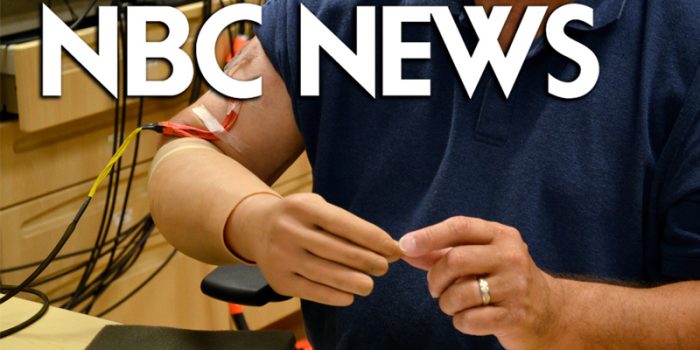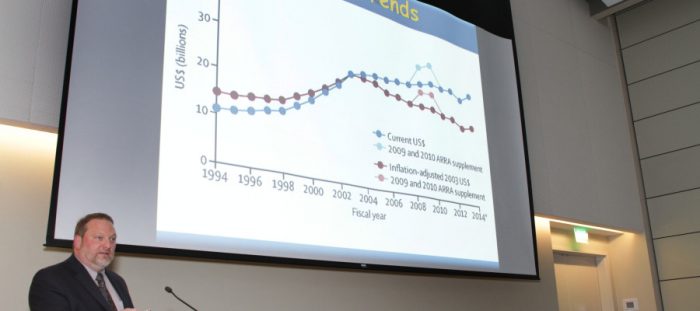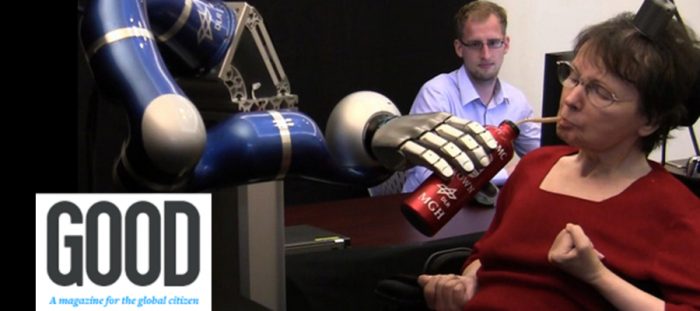DARPA Tech Could Give Artificial Hands Sense of Touch
Veterans with prosthetic hands could someday regain their sense of touch thanks to a new DARPA initiative. It’s called the Hand Proprioception and Touch Interfaces (HAPTIX) program, and the goal is to let amputees “feel” objects with technology that would send signals back and forth between the brain and artificial hand. Read the full article










